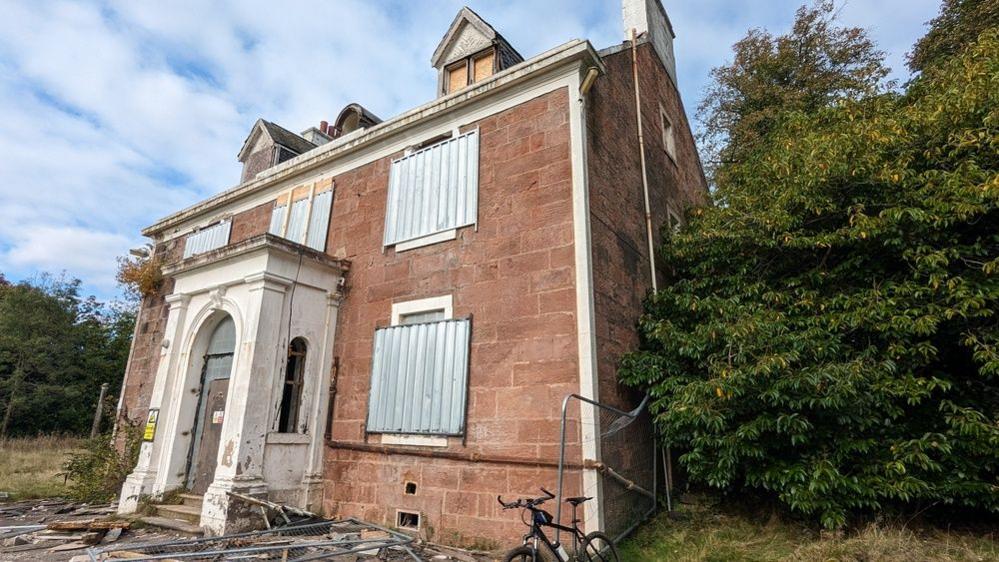Company pledges to rebuild listed manor it demolished unlawfully

The classical-style country house dated back to 1799
- Published
A company has pledged to rebuild a listed Georgian country house in Clackmannanshire after it demolished the building without permission.
Carsebridge House in Alloa, known locally as the Dolls' House, was demolished by Advance Construction (Scotland) on 18 September - three weeks after a fire devastated the property.
The roof was lost in the blaze and the company had applied for consent to knock down the building. Despite not receiving permission, the firm said it had to tear down the category B-listed manor for safety reasons.
Police are investigating the demolition as well as the fire, which they are treating as deliberate.
The local authority was alerted on the day of the demolition and council officers arrived on site and ordered the company to stop.
But the demolition team continued to tear down the building over the course of the day.
Safety issues
Advance Construction (Scotland) took over the site in 2020 after it had lain empty since 1984.
The owners applied to remove its listed status but this was denied.
A spokesman said the fire on 29 August caused extensive damage following years of "repeated vandalism" and "unlawful entry".
He said: "In April 2022, we had a bad accident during working hours whereby a teenager unlawfully entered the building, fell off the roof, and was in a coma for several days.
"This, as well as the number of individuals entering the building, has made us acutely aware of safety issues.
“Following the fire, we commissioned an independent structural engineer’s report as a matter of urgency, and it was very clear that the building could not be saved and was an immediate health and safety risk."
The spokesman said the Health and Safety Executive advised the company that "safety takes precedence".
He added: "Our decision to undertake this was not taken lightly and was purely based on safety issues and a concern to remove any risk to human life.
"We were also aware that it may take some time to deliver the necessary consents from the council to demolish the building, which could heighten the risk."
The company has pledged to rebuild the building on the site in a similar style using façade stone saved in the demolition.
It has also offered to relocate a commemorative Doric column, called the Napoleon Pillar, to a location of the council’s choosing.
Clackmannanshire Council said it was considering taking action against the owners, including potentially referring them to the procurator fiscal.
Graham Lindsay, deputy leader of the council, said: “This building was of significant historical and architectural interest locally and nationally.
“While I appreciate that the building was in a poor condition following the devastating fire, and an application to demolish had been submitted, the demolition work last month was carried out without consent of this council.
"Those responsible should be held fully to account.”
The council agreed that a report on possible next steps should be prepared and presented to the planning committee.
Dating from around 1799, the country house was home to the founder and manager of Carsebridge Distillery in the neighbouring field.
The distillery began producing malt whisky in 1799 but switched to grain whisky production in 1850.
By the 1960s it was one of the biggest grain distilleries in Scotland.
It closed in 1983 but the cooperage remained open until 2011, when former owners Diageo moved operations to Cambus.